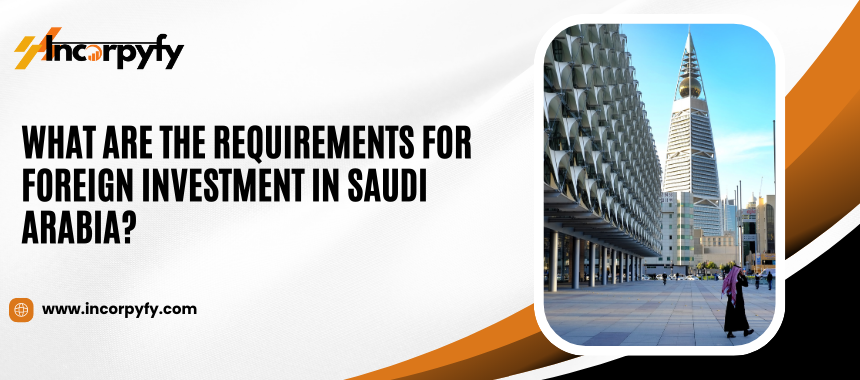
Introduction
The Kingdom of Saudi Arabia has emerged as an attractive destination for foreign investors seeking to tap into the region’s vast economic potential. With its strategic location, abundant natural resources, and ambitious economic diversification plans, the country offers a wealth of opportunities across various sectors. However, navigating the foreign investment landscape in Saudi Arabia requires a comprehensive understanding of the latest regulations, requirements, and procedures. This comprehensive guide aims to provide a detailed overview of the essential elements foreign investors must consider when establishing their presence in the Kingdom in 2024.
Understanding the Saudi Arabian General Investment Authority (SAGIA)
SAGIA serves as the primary regulatory authority responsible for overseeing and facilitating foreign investment in Saudi Arabia. This government body plays a crucial role in shaping the investment climate, promoting economic growth, and ensuring compliance with the Kingdom’s investment policies. Foreign investors must closely familiarize themselves with SAGIA’s regulations, licensing requirements, and procedures to ensure a smooth and compliant investment process.
Obtaining a Foreign Investment License
One of the fundamental requirements for foreign investors in Saudi Arabia is obtaining a foreign investment license from SAGIA. This license grants non-Saudi individuals or entities the legal right to establish and operate a business within the Kingdom. The application process involves submitting various documents, including a detailed business plan, proof of financial capabilities, and compliance with sector-specific regulations.
Choosing the Appropriate Business Structure
Foreign investors in Saudi Arabia have the option to select from various business structures, each with its own advantages and limitations. Popular choices include Limited Liability Companies (LLCs), Joint Stock Companies, and Branch Offices of Foreign Companies. The chosen structure will determine factors such as ownership percentages, capital requirements, and management structures.
Foreign Ownership Regulations and Restrictions
While Saudi Arabia has taken significant steps to liberalize its foreign ownership regulations, certain sectors and industries may have specific restrictions or limitations on foreign ownership. It is crucial for investors to thoroughly research and understand these regulations to ensure compliance and avoid potential legal complications. Additionally, some sectors may require partnering with a local Saudi sponsor or obtaining special approvals.
Capital Requirements and Investment Thresholds
Depending on the industry, business structure, and investment size, foreign investors in Saudi Arabia may be subject to minimum capital requirements and investment thresholds. These requirements are designed to ensure the financial viability and commitment of the investment project. It is essential to carefully review and comply with these requirements during the planning and application stages.
Licensing and Regulatory Compliance
Beyond the initial foreign investment license, foreign investors may need to obtain additional licenses and permits specific to their industry or business activities. This may include sector-specific licenses, environmental clearances, labor permits, and compliance with local regulations in the respective region or city where the business will operate.
Establishing a Physical Presence
Foreign investors are typically required to establish a physical presence in Saudi Arabia, such as an office, warehouse, or manufacturing facility, depending on the nature of their business. This requirement aims to ensure a tangible commitment to the local economy and to facilitate regulatory oversight. Investors must carefully consider factors such as location, infrastructure, and proximity to target markets when establishing their physical presence.
Foreign Direct Investment (FDI) Incentives and Support
To attract and encourage foreign investment, Saudi Arabia offers a range of incentives and support mechanisms. These may include tax incentives, subsidized land or infrastructure, access to skilled labor, and special economic zones or free zones with additional benefits. Foreign investors should thoroughly explore these incentives and leverage them to maximize the potential of their investments.
Read More: Best Business Setup Consultants in Saudi Arabia
Conclusion
Foreign investment in Saudi Arabia in 2024 presents a unique opportunity for global businesses to tap into the Kingdom’s burgeoning economy and strategic position. However, navigating the intricate web of regulations, requirements, and procedures can be a complex endeavor. At Incorpyfy, our team of experts specializes in guiding foreign investors through the entire process, ensuring compliance, streamlining procedures, and maximizing the potential of their investments.
With our in-depth knowledge of the Saudi Arabian market, extensive experience in business setup in Saudi Arabia, and strategic partnerships with key stakeholders, we offer comprehensive support tailored to your specific needs. From obtaining the necessary licenses and permits to establishing a physical presence and exploring incentives, we are your trusted partner in unlocking the Kingdom’s vast potential.
So, whether you are a multinational corporation seeking to expand your global footprint, an international firm exploring new markets, or an overseas venture looking to establish a presence in Saudi Arabia, Incorpyfy is here to guide you every step of the way. Contact us today to embark on your foreign investment journey in the Kingdom with confidence and expertise.





